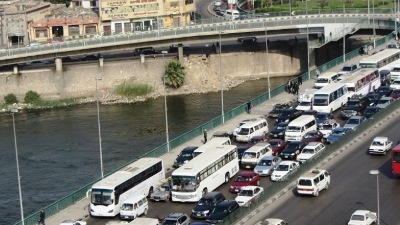The World Bank Group is organizing a one-day round table to discuss the use of big data in urban mobility.
Big Data can be defined as a vast collection of structured and unstructured data sets that have become difficult to process using traditional data processing tools due to the volume and complexity of the data.
Big Data may come from mobile phone call logs, mobile-banking transactions, online user-generated content—such as blog posts and Tweets, online searches, and satellite images. Turning Big Data into actionable information is based on computational techniques that bring trends and patterns within and between extremely large datasets.
The event aims at increasing the awareness and understanding of data analytics related to urban transport among decision makers. There is growing consensus that data analytics can help improve traffic congestion in corridors and reduce greenhouse emission from transport and support climate change in the long term.
The meeting is a platform of collaboration bringing together Egyptian experts as well as experts from other regions of the world to present and discuss their findings.
